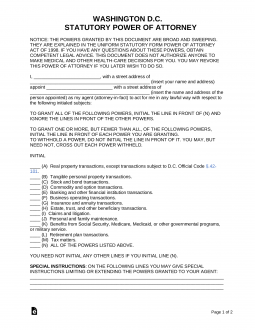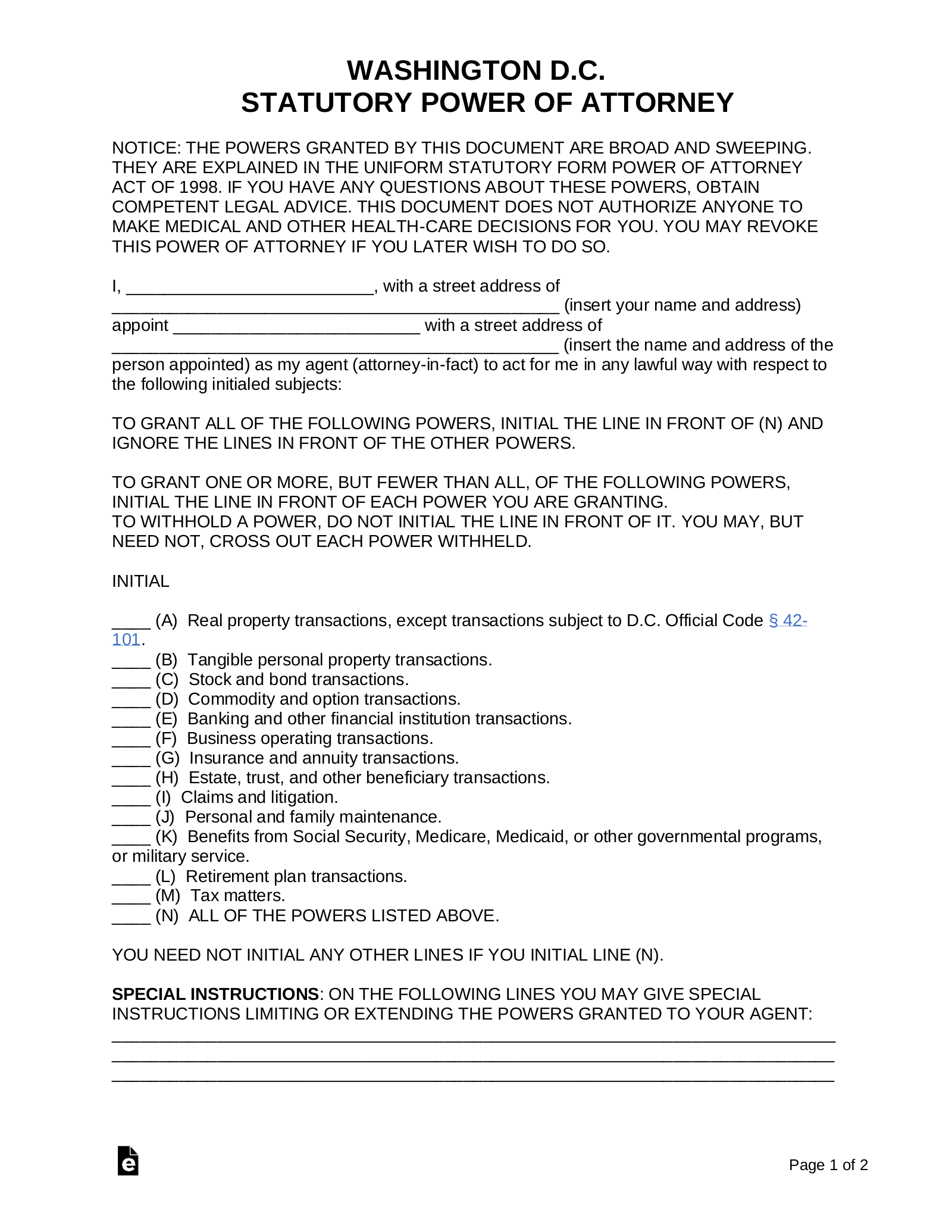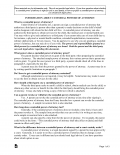Updated January 02, 2024
A Washington D.C. durable power of attorney allows an individual (“principal”) to select someone else (“agent”) to handle any type of financial decision on their behalf. The agent will be able to continue to make the financial powers listed in the form even after the principal should become incapacitated. It is required that the form is signed in the presence of a notary public. Afterward, the agent may begin acting on behalf of the principal by having a copy of the form and by signing any documents in the form of “[PRINCIPAL’S NAME] by [AGENT’S NAME] acting as Agent”.
Table of Contents |
Laws
D.C. Code Title 21, Chapter 26 (Uniform Power of Attorney Act)
Definition of “Durable”
‘Durable,’ with respect to a power of attorney, means not terminated by the principal’s incapacity. (§ 21–2601.02(2))
Definition of “Power of Attorney”
‘Power of attorney’ means a writing or other record that grants authority to an agent to act in the place of the principal, whether or not the term “power of attorney” is used. (§ 21–2601.02(7))
Signing Requirements
A power of attorney must be signed by the principal, or in the principal’s conscious presence by another authorized individual, before a notary public. (§ 21–2601.05)
Statutory Form
A statutory form for financial powers of attorney is available under § 21–2603.01.
How to Write
Download: PDF, MS Word, OpenDocument
Principal Declaration
(1) Washington D.C. Principal Identity. The Issuer of this document will be able to authorize a specific Party to act in his or her name over one or more predetermined matters in the District of Columbia. Known as the Principal, this document’s Issuer should be identified with his or her full name.
(2) Principal Address.
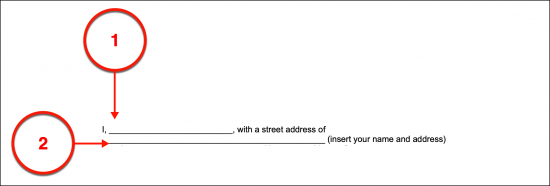
(3) Washington D.C. Attorney-in-Fact. The Attorney-in-Fact the D.C. Principal wishes to grant authority to must have a presentation of his or her name provided in the declaration statement opening this form. The person named to this position will be able to wield the same principal authority the Issuer of this document possesses in the way this paperwork defines.
(4) Attorney-in-Fact Address.

Granted Powers Of Washington D.C. Attorney-in-Fact
(5) Real Property Transactions. The D.C. Principal must determine which powers he or she wishes to grant the Attorney-in-Fact from the list on display then use his or her initials as an instrument of approval. Statement (A) of this will grant the Attorney-in-Fact the ability to carry out real property or real estate transactions as per D.C. Official Code e § 42-101. The District of Columbia Principal has the option to initial this statement to authorize the Attorney-in-Fact to handle these transactions on his or her behalf or restrict this power from the Attorney-in-Fact by leaving this statement unmarked.
(6) Tangible Personal Property. Statement (B) grants the Attorney-in-Fact the principal power to handle transactions with the Principal’s tangible personal property if the Principal initials this item.
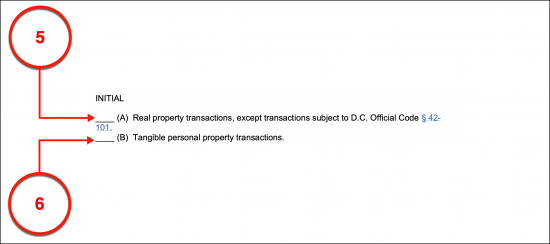
(7) Stock And Transactions. Principal stocks and bonds can be traded, bought, sold, or negotiated can be handled by the Attorney-in-Fact so long as the authorizing initials of the Principal are provided to Statement (C).
(8) Commodity And Bond Transactions. The Attorney-in-Fact can be given the authority to manage the Principal’s commodity and bond transactions through the Principal’s approving initials.
(9) Banking And Other Financial Institution Transactions. If the Principal expects the D.C. Attorney-in-Fact to handle his or her banking needs then, Statement (E) should be initialed to show approval.
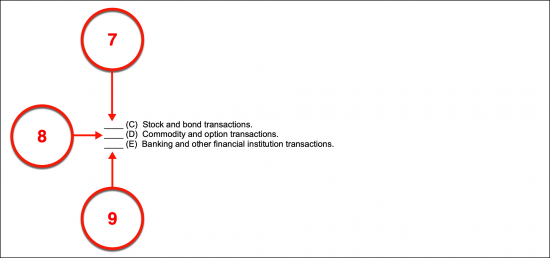
(10) Business Operating Transactions. The Principal can appoint the D.C. Attorney-in-Fact with the power to make decisions and take actions in his or her name with a Business the Principal owns or has an interest in with the same level of authority the Principal carries. This power can only be granted when the Principal initials Statement (F)
(11) Insurance And Annuity Transactions. The Principal may require that his or her insurance policies and any needed annuity transactions can be maintained and handled by the Attorney-in-Fact. If so, he or she must initial Statement (G).

(12) Estate, Trust, And Other Beneficiary Transactions. The D.C. Principal behind this document can use the twelfth statement as a way to give the Attorney-in-Fact the same authority he or she carries over estates, trusts, and Beneficiary transactions. Such a granting of power can only come through the authorizing initials of this Principal.
(13) Claims And Litigation. The Principal actions required for claims and litigations can be conducted by the D.C. Attorney-in-Fact through the thirteenth statement once it is initialed by the Principal.
(14) Personal And Family Maintenance. The Principal’s personal affairs including the maintenance required for family (i.e., paying rent, handling moves, daily transactions, etc.) can be handled by the D.C. Attorney-in-Fact if the Principal produces his or her initials of authorization where requested.
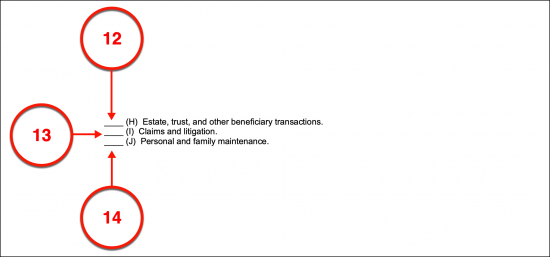
(15) Benefits From Government Programs Or Military Service. The Principal’s applications, actions to prove eligibility, and other decisions needed to manage his or her government or military benefits can be included in the scope of authority given to the D.C. Attorney-in-Fact. To effect this power, the D.C. Principal must initial Statement (K).
(16) Retirement Transactions. The decisions and actions that the D.C. Principal is responsible to see through to maintain his or her retirement plans can be designated to the Attorney-in-Fact in Statement (L) with the initials of the D.C. Principal.
(17) Tax Matters. If the D.C. Principal seeks the Attorney-in-Fact’s service regarding his or her taxes then Statement (M) should bear the principal approval, however, be advised, that Tax Entities will place separate requirements to many of an Attorney-in-Fact’s abilities. These Entities must be satisfied directly and according to whatever requirements have been set.
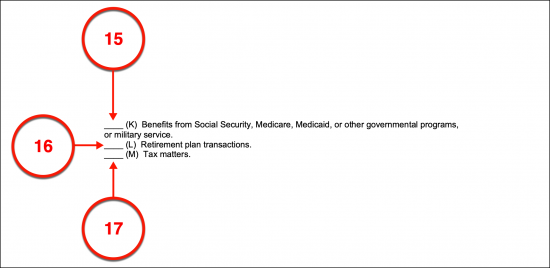
(18) Granting All Legal Powers. All the powers listed above can be granted to the D.C. Attorney-in-Fact by the Principal in one fell swoop. To engage this option, the D.C. Principal should leave Statements (A) through (M) unmarked and initial only Statement (N).

Special Instructions
(19) Additional Provisions. While the list of powers is comprehensive, the District of Columbia Principal may require to give instructions to the Attorney-in-Fact, set limitations to one or more of the powers granted, or provide additional grants of authority in certain matters. These tasks should be handled in this document, so an area has been set aside to make sure they are included. If more room is required for the additional instructions and declarations by the D.C. Principal, then an attachment with such material can be composed and included with this document’s presentation (at all times).

Washington D.C. Principal Signing
(20) Signature Date.
(21) Washington D.C. Principal Signature. The designations of power to the D.C. Attorney-in-Fact made above can only be put in effect by the Washington D.C. Principal. He or she must sign this form before a Notary Public whose license is recognized by the District of Columbia. This action should be performed immediately after supplying the signature date.
(22) Social Security Number. Due to the ramifications of granting principal power to an Attorney-in-Fact, the Principal’s social security number should be reported to further verify his or her identity.
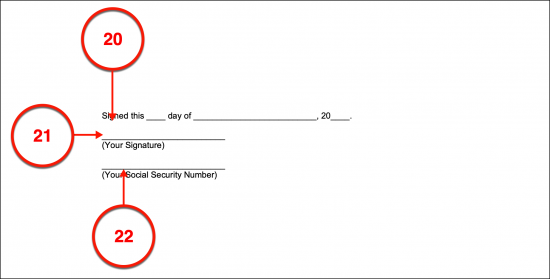
District Of Columbia Notarization Requirement
(23) Notary Public. The attending Notary Public may issue additional signing instructions before will observing the Principal’s act of signing. He or she will then supply the facts and credentials needed to notarize the signature act of the Principal issuing this document.
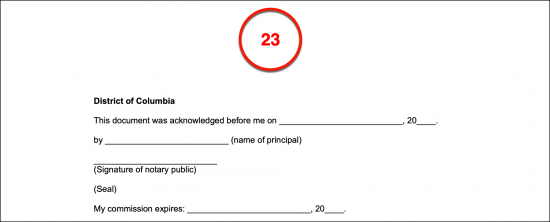
Related Forms
Download: PDF

